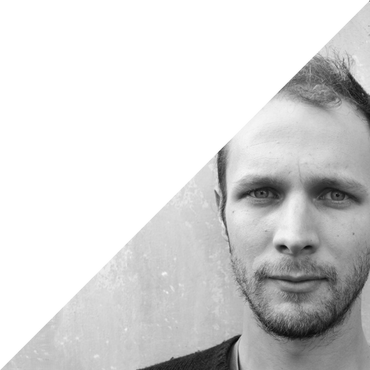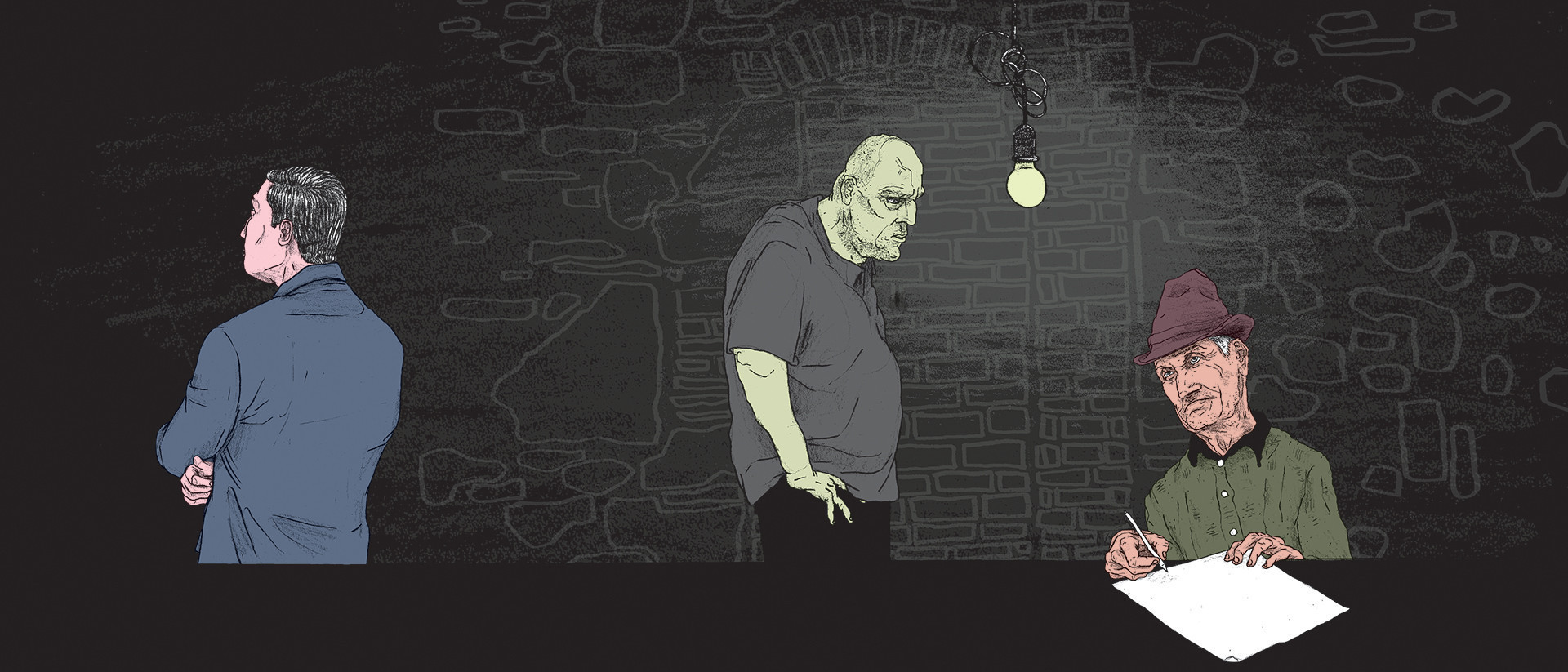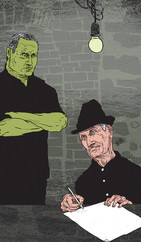Through three subsidiary companies belonging to a €315 million investment fund called Rabo Farm, Rabobank has acquired over 21,000 hectares of farmland since 2011 across Romania and Poland.
The project is part of a 10-15 year investment which is expected to generate returns of 8%, or up to €900 million for investors.
An investigation by De Correspondent and the Romanian Centre for Investigative Journalism has found that in at least 11 cases, plots of land that were purchased by the fund are now part of investigations by Romanian state prosecutors and anti-corruption authorities in connection with charges of forgery and fraud.
Illustration by Gijs Kast

By doing business with convicted criminals and local politicians, the fund and its the three subsidiaries are failing to abide by the Rabobank’s own standards of due diligence.
When questioned on this matter, the Managing Director of the fund for Rabobank, Dick van den Oever, replied, "Our regular due diligence consists of collecting all kinds of documents that help us establish an image of who the seller is. If we come across something striking, than we will be triggered to do more, like paying the village a visit."
Elderly villagers describe how Papuc came to them in the middle of the night and harassed and tricked them into selling their land.
In other cases, villagers have taken the fund to court, claiming they never sold land that Rabo Farm owned and was collecting rent on.
Through dozens of interviews and the analysis of hundreds of land registry and court documents, we found that a Rabo Farm subsidiary worked extensively with intermediaries who employed a criminally convicted scout called Gheorghe Papuc to find them land.
Elderly villagers describe how Papuc came to them in the middle of the night and harassed and tricked them into selling their land. All we spoke to told the same story: that they were taken by bus to a nearby town along with dozens of other villagers.
Once there, they were taken to a block of flats and pushed into a small room with no lighting, where they were made to sign over their land ownership in front of a notary. They were paid as little as 80 euros per hectare, but say that the room and bus were kept dark so they were unable to count the cash until they returned home. No one we spoke to had any idea who their land had been sold to.
Rabo Farm planned to invest €615 million. The initial phase totaled €315 million, and a subsequent phase has now been put on hold indefinitely, as the institution reconsiders its strategic position "for a number of reasons". Infographic by Momkai
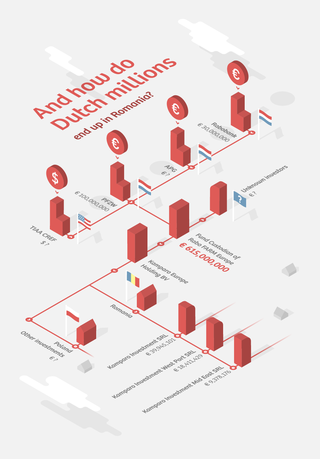
Rabo Farm has bought land in at least 51 Romanian villages, located all across the flat plains in the west, south and east of the country. After purchase, the fund leases the land out to Romanian farmers, who they refer to as ‘skilled leaseholders’ and who Rabo Farm hopes to help ‘grow their business’.
Illustration by Gijs Kast
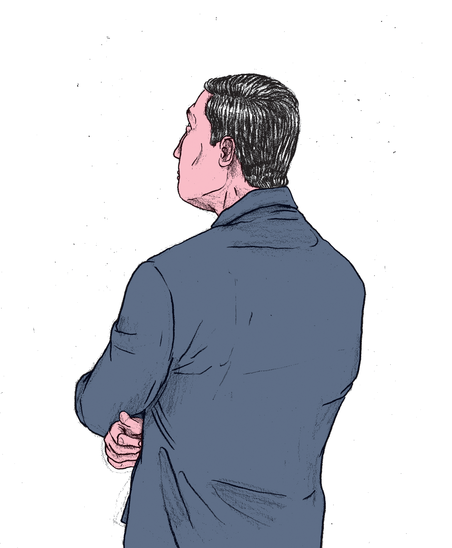
But our evidence shows that Rabo Farm’s leaseholders include politicians, individuals on suspended sentences for crimes including modern-day slavery, theft and bribery, or local oligarchs with strong connections to corrupt officials.
In villages where Rabo Farm rents land to companies either owned by or closely connected to the local mayor, villagers told us of political monopolization, with local resources and employment opportunities owned or controlled by small groups surrounding the village mayor.
Contracts drawn up between leaseholders and Rabo Farm suggest that the fund is exploiting a legal loophole which allows it to redirect European agricultural subsidies into its own coffers, despite not actually farming the land themselves.
Using an online Romanian database for contractual guarantees we have found that leaseholders are directly transferring their single area payment subsidies to Rabo Farm as a guarantee against rent, and in doing so moving the EU’s primary agricultural aid away from farmers and into the hands of investors. In response to our questions about the redirection of subsidies, Rabo Farm claim that: "This is in line with the law in Romania and many EU countries and is in favor of farmers."
The findings contrast starkly with Rabobank’s reputation as one of the most responsible banks in the world, and raise important questions about the fund’s commitment to due diligence and corporate social responsibility.
In a report published by the fund in 2013 , Rabo Farm stated that: "Before we acquire or invest in a farm, we conduct an intensive due diligence analysis on sellers, leaseholders, farm operators, farms and many other factors relevant to the investment phase."
The report also states, "Rabo Farm is active in rural regions where the economic and social situation is usually below the country’s average. Rabo Farm believes that its investments contribute to the local social and economic developments of the communities where it takes place and that it has a role in supporting these developments."
Illustration by Gijs Kast
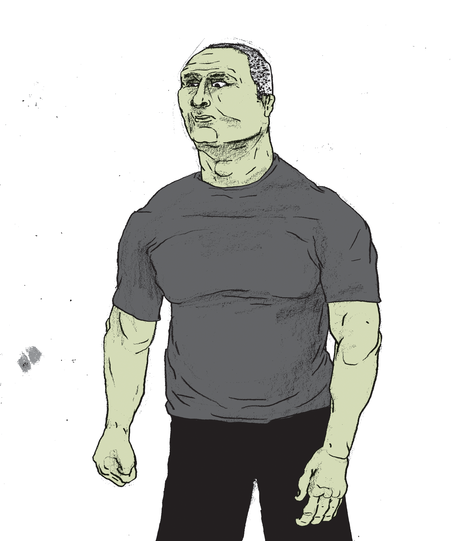
Over the course of a one-year investigation, a very different picture has emerged: one where Rabo Farm is drawing profit from a system mired in systemic corruption and entrenched poverty, and contributing to the alienation of smallhold farmers on the poorest fringes of the European Union.
The vast majority of Rabo Farm’s profits go to Dutch and American pension funds.
So far, Rabo Farm has invested €315 million -- only half of the total fund. That amount has gone in its entirety to acquiring land in Romania and Poland. The remaining €300 million is also expected to be invested primarily in Romania and Poland, but with the potential for expansion to other eastern European countries. In an interview with IP Nederland in April 2014, Rabo Farm’s chief investment officer Gerd Boeckenhoff said, "While our eyes are certainly not closed to the surrounding countries, including the Baltic states and Slovakia, we are conservative and currently prefer to stick with the two countries where we have really established ourselves."
In a teaser for Rabo Farm, the fund state that they expect an 8% annual growth in the value of their land, in line with the rapidly soaring price of farmland in the easternmost members of the European Union. After 10-15 years, the fund plans to sell at up to three times the price they bought for.
The vast majority of Rabo Farm’s profits go to Dutch and American pension funds. According to a report issued by the Food and Agriculture Organisation of the United Nations (FAO), Rabo Farm’s investors include the Dutch pension funds APG and PZFW (formerly PGGM) and the American Fortune 100 retirement fund TIAA-CREF. Rabobank has not disclosed any information regarding investor inputs to the fund.
Some names have been changed to protect the identity of those involved.
I wrote this article with Sorin Semeniuc. The following -- and many more -- helped make this reporting project happen: Milvus Wildlife Protection Group, Attila Szocs, Stefan Candea, Andreea Pavel, Adrian Dumitru, Romulus Dabat, Adina Pop-Coman, Andrei Astefanesei and Elena from Dobromir.
This investigative journalism project was made possible in part by the Robert Bosch Stiftung and JournalismFund.eu



